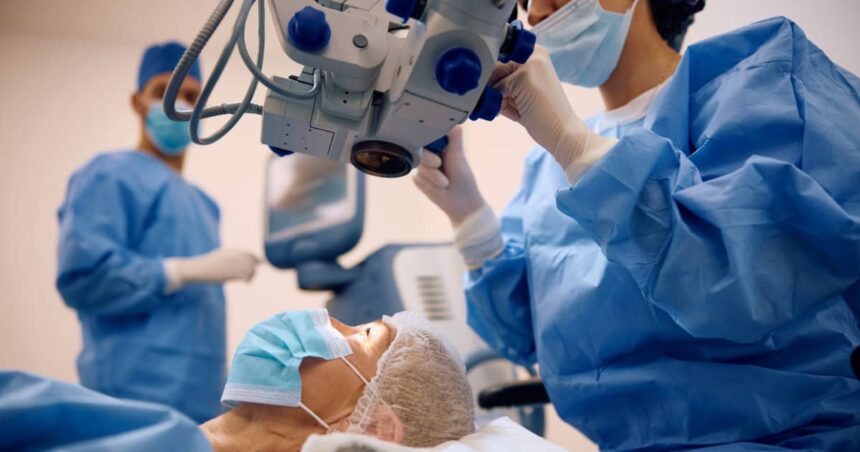When vision problems begin to interfere with daily life, consulting an ophthalmologist or eye surgeon may be the next fundamental step. Whether it’s for corrective procedures or other complex eye conditions, understanding what to expect before surgery helps patients feel informed and at ease. Learning what patients should know before visiting eye surgeons prepares you to discuss treatment options, ask the right questions, and make confident decisions about your eye health.
Who Do Eye Surgeons Do?
Eye surgeons, also known as ophthalmologists, are medical doctors who specialize in the care of the eyes. They have completed medical school plus several years of further training focused specifically on the eyes. These eye care specialists can perform surgery, prescribe medications, and treat common and complex eye problems.
An ophthalmologist can handle everything from basic eye exams to complicated surgeries. They treat conditions such as cataracts, glaucoma, retinal problems, and eye injuries. Eye surgeons also work with other doctors to manage eye problems related to diabetes, high blood pressure, and other health conditions.
When Should You See One?
Several situations may lead your regular eye doctor to refer you to eye surgeons. These include:
- Sudden changes in vision, such as seeing flashing lights, dark spots, or shadows.
- Diagnosed conditions like glaucoma, cataracts, or macular degeneration. These often require specialized treatment.
- Severe eye pain, double vision, or any form of eye injury.
- Diabetes can lead to serious eye complications, requiring regular monitoring by an ophthalmologist.
- A family history of eye diseases may necessitate proactive check-ups even in the absence of symptoms.
- Findings during a routine eye exam indicate the need for specialist care.
Early detection and specialist intervention often result in better treatment outcomes.
What Happens at Your Consultation?
Your first visit to an eye surgeon will be detailed than a regular eye exam. The appointment usually takes longer because the doctor needs to gather lots of information about your eyes and overall health. Make sure to arrive early for sufficient time to complete the necessary paperwork regarding your medical history and current symptoms.
The eye surgeon will ask about your vision problems, medications you take, and your family’s eye health history. They’ll perform several tests to assess your visual acuity and examine the inside and outside of your eyes. Some tests involve eye drops that dilate your pupils, which can cause blurry vision for a few hours.
During the exam, the doctor uses special equipment to take pictures of your eyes or measure the pressure inside them. Don’t hesitate to ask questions about what they’re doing or what they find. The eye surgeon will explain their findings and discuss treatment options if necessary.
How To Prepare for Surgery?
If your eye surgeon recommends surgery, they’ll give you specific instructions to follow before the procedure. These often include stopping certain medications, arranging for someone to drive you home, or using special eye drops for several days beforehand. Make sure to follow all instructions carefully to help your surgery go smoothly.
Most eye surgeries are done as outpatient procedures, meaning you go home the same day. Your eye surgeon will explain what will happen during your specific procedure. After surgery, you’ll need to follow specific care instructions to help your eyes heal properly. This usually includes using prescription eye drops, wearing an eye shield while sleeping, and avoiding certain activities like swimming or heavy lifting.
Consult an Eye Surgeon Today
Taking care of your eyes is fundamental for maintaining good vision. Early treatment of eye conditions often leads to better outcomes and helps prevent vision loss. Contact a trusted eye care clinic near you to schedule a consultation with expert eye surgeons today.





